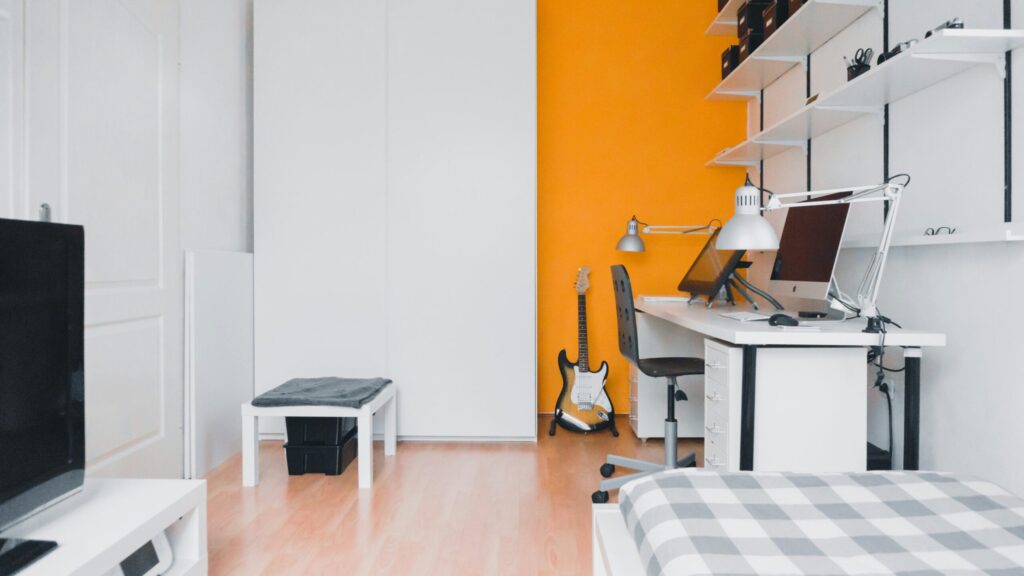 Being a university student comes with lots of demands: Attending classes, keeping your grades up, holding a full or part-time job, keeping your room or flat clean, running errands, socialising, taking time for yourself and much more. When you have a life chock-full of to-dos, it is vital that you spend your time very wisely, to ensure your success and get the most out of the 24 hours that you have in a day.
Being a university student comes with lots of demands: Attending classes, keeping your grades up, holding a full or part-time job, keeping your room or flat clean, running errands, socialising, taking time for yourself and much more. When you have a life chock-full of to-dos, it is vital that you spend your time very wisely, to ensure your success and get the most out of the 24 hours that you have in a day.
To get you on your way to living your best university life, we’ve compiled a list of our top tips on increasing your productivity. Read on below to get started.
- Set a good routine and stick to it. As humans, we thrive on routine and work best when we know what is coming next. While your days may vary from time to time, you should be able to keep yourself in a relatively normal routine by waking up and going to sleep around the same time each day, eating three square meals and a few healthy snacks, exercising regularly, setting aside blocks of time for your studies and even making time to socialise with your family, flat mates, friends or significant other. This might seem like an easy trick to hack, but in a society where we are all too often expected to be busy all the time and be on the go non-stop, it can be very easy to fall into the habit of winging your everyday life. Falling victim to this habit will leave you feeling unorganised, rushed, and ultimately running around in circles because you are unable to keep up with your daily life. If you’ve never really been one to set a routine and stick to it, try time blocking your day. Time blocking is essentially making a list outlining your day by the hour. If you’re new to time blocking, read this helpful guide and try this free printable template to get you on your way. You’re already under a lot of pressure as a university student, and there are a lot of unexpected things that can come your way, but your daily routine is the one thing that you can mostly control. Why not take advantage of this factor and do just that?
- Focus on one task at a time and tackle your larger projects first. Multi-tasking is a dangerous game, and here’s why: When you multi-task, you are stretching yourself in far too many directions. This can lead to forgetting important details, missing deadlines and ultimately feeling burnt out. When you jump from task to task, you will likely find yourself starting over on the same thing repeatedly, which means you will be working twice as long on the projects at hand. What’s just as important as focusing on one task at a time is focusing on your larger projects first. When you’re thinking of all that you need to get done, don’t get caught up on the picky bits. Start with your larger projects first, while both your energy and motivational levels are the highest. You can do this by writing all of your to-do’s down on a notepad and highlighting the three most important things to get done today, then focus on completing those tasks before tackling any other projects. Or if you prefer a digital platform, you won’t be lost for choices with this exhaustive . Remember—Work smarter, not harder. Don’t double your workload by trying to get everything done at once!
- Set up your workspace. Make sure that your workspace sets you up for success by setting it up before starting on any new projects or tasks. The first step is to gather everything you will need, to include your course books, laptop, pen and paper, chargers, water, and appropriate lighting. (Natural lighting is best, so aim to set up your space next to an open window. However, if this isn’t an option, a SAD lamp is an excellent choice and will likely improve your study habits!) You might even benefit from adding some personal touches to your space by putting on your favourite study playlist, popping up a photo or two of the most important people in your life and even putting out a few potted plants to make the space feel both welcoming and fresh. All these things will ensure that while you are in the thick of a project or task, you will not need to get up multiple times to grab something you may have forgotten, and you will have also set a nice tone to allow you to focus on what you need to get done.
- Limit screen time. How many times have you gone to check just one thing on your phone, and the next thing you know, you’ve been scrolling through social media for half an hour? We’ve all been there! To increase your productivity, limit your screen time. Turn your phone over so that you cannot see it, or turn it off altogether, whilst working on a project. If you still find yourself reaching for your phone, try using one of these apps that will not only help you to limit your screen time, but will also make you more aware of the time spent on it. (Is there any better motivation to switch off than that?!) If you’re not having problems on your phone, but you find yourself constantly checking and responding to emails or text messages through your laptop, try closing out of your apps and/or turning off your notifications so that you do not get distracted by your messages popping up while you are in the middle of studying. You can even use your time blocking method from the very first point in this article and set aside regular time each day to check and respond to emails! Think about how much you pick up your phone or check your email or messages on your laptop throughout the day, and you’ll shock yourself by just how much time you’re wasting on the screen each day. Be present in the task at hand, limit your screen time, and watch your productivity skyrocket!
- Take regular breaks and look after yourself. One of the quickest ways to set yourself up for failure is to fail to look after yourself. You will be doing yourself no favours if you sit in your workspace for extended periods of time with little to no breaks. Make sure to take regular breaks from your studies to avoid burnout, and to give yourself a little reset. This can look like going for a walk to get some sunshine and fresh air, or even making yourself a fresh cup of tea. If you’re having trouble remembering to take breaks, download the StandApp to remind you, or take it old school by setting a timer on your phone. Once you begin taking regular breaks, you will feel much more rested and energetic whilst you are working.
Now that you know where to begin in increasing your productivity, go ahead and put these steps into action. Try implementing these five simple steps for just one week, and you are sure to see not only your productivity increase, but you will also begin to see better results in all areas of your life— From improved test scores to improved relationships with your family and flat mates. When you increase your productivity, you will find that you have more time. And when you have more time, you can focus on what truly matters in your life!







